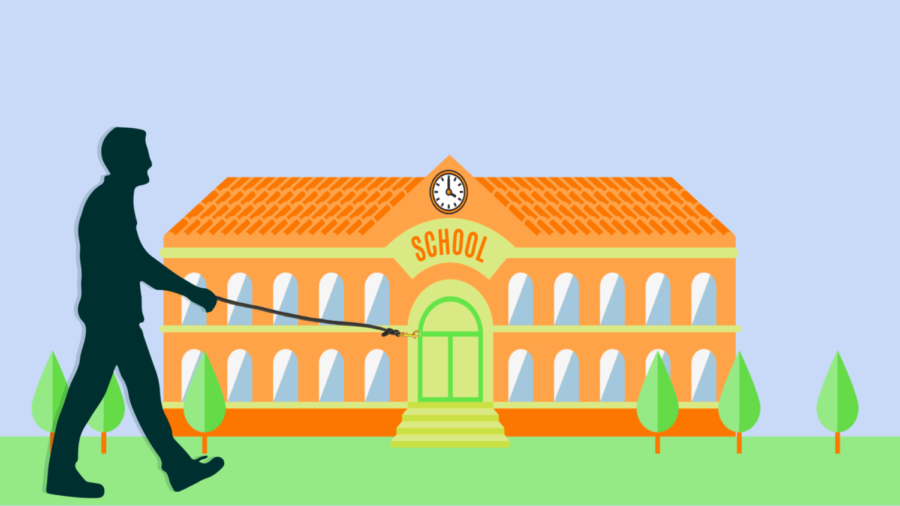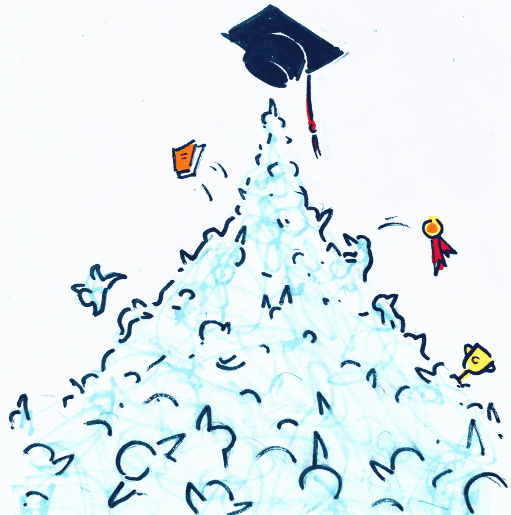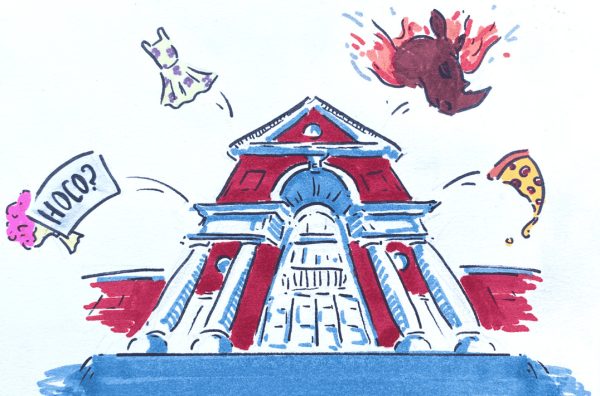Politicians and Parents: Hands Off our Education
It seems everything is becoming increasingly politicized these days, and politics are increasingly devolving into a game of divide and conquer. With the onset of Covid-19, school board meetings have become hotspots of bitter partisan debates over mask mandates, transgender rights, and equity initiatives, with politicians capitalizing on parents’ frustrations to convert schools into the next frontier for a national culture war.
The resignation on September 2 of 12-year veteran Bucks Country School board member John Gamble, due to persecution and death threats to his family because of his voting position, is a testament to the roil and rancor unleashed by “parental rights”, a new rallying cry for capturing and channeling conservative outrage into a potent political movement. The November 3 gubernatorial race in Virginia, where Republican candidate Glenn Youngkin drew on public outrage over the way race is taught in schools and new protections for transgender students, is further witness to this phenomenon. Many liberals argue that the mobilization or “weaponization” of a newly galvanized grassroots parent base, is the new Republican “Trojan horse” or “playbook” for the upcoming election cycle.
It has been said that “the foundation for every state is the education of its youth” (Diogenes) and that “the secret in education lies in respecting the pupil” (Emerson). Public education, however, is slowly morphing into a political power struggle centered on adult partisanship rather than student participation.
In the absence of respect, how can future generations expect to learn responsibility? Moreover, in an environment of disparagement, how do we learn to engage in civil discourse? Our country faces a crisis of conscience. We struggle to strike the right balance between demonstrating the empathy and tolerance required for a society built upon freedom, respect, and intellectual thought and exercising our right to speak out to protect those very liberties in a way that is not reactive, fearful, and disrespectful.
The politicization of education is coming from both the left and the right – and these politics have real consequences on the quality of education. For example, last February, in an attempt to create a more inclusive and equitable public education system, The California Department of Education, Instructional Quality Commission, and State Board of Education proposed a revision to the Math Framework for state school curriculums that promoted “detracking,” which is the abolishment of advanced math courses. The draft cites that only 4% of Black students and 3% Latinx students are enrolled in gifted programs, compared with 32% of Asian American students and 8% of white students, and states that such labels of “giftedness” have “led to fragility among students”. Furthermore, the draft suggests that providing only some students pathways to high-level math courses “has resulted in the denial of opportunities to many potential STEAM students–especially Latinx and African American students”. Not only is the notion that Latinx and African American students cannot accelerate in math in itself biased and disrespectful to students, but the failure to investigate and address the root causes for the disparities in achievement neglects the very purpose of education–which is to teach students how to learn.
Furthermore, administrators seem to miss the main point about equity and access in the first place, which is that math acceleration is part of a larger debate on access to colleges. Denying access to higher-level math courses will not “level the playing field” because public school students will still remain at a disadvantage to private school students, for example, in the college admission process where calculus “has long been an informal gatekeeper for acceptance to selective universities.”
We are living in an age when more than ever, our future is dependent upon math, yet measures to decelerate math will leave us falling behind the rest of the world. Test results already show that American math students are lagging behind those in other developed countries: among the 35 members of the Organization for Economic Cooperation and Development, the U.S. ranked 30th in math. If we decelerate our math curriculums, we will continue to erode our global competitiveness.
In an open letter to California’s education and political leaders, a senior fellow at the Independent Institute, Dr. Williamson M. Evers, warns “This proposed framework will discourage districts from having advanced classes for gifted students. It’s going to block the rise of talented kids to important roles in society.”
The language of mathematics is a universal one, predicated on a respect for the power of logic and leading to the discovery of natural laws and fundamental truths. The discipline of math, moreover, is one that teaches people to “think outside the box”, to find inventive solutions to the most challenging problems, and to engage in the world with resilience and creativity.
We need to stop reducing ourselves to the lowest common denominator of what is palatable; we need to embrace our diversity and build each other up rather than tear one another down. We must strive to create cooperative forums to facilitate healthy and constructive dialogue, starting with our students. Together, alongside educators and administrators, students should be encouraged to seek more involvement and responsibility in their education.






